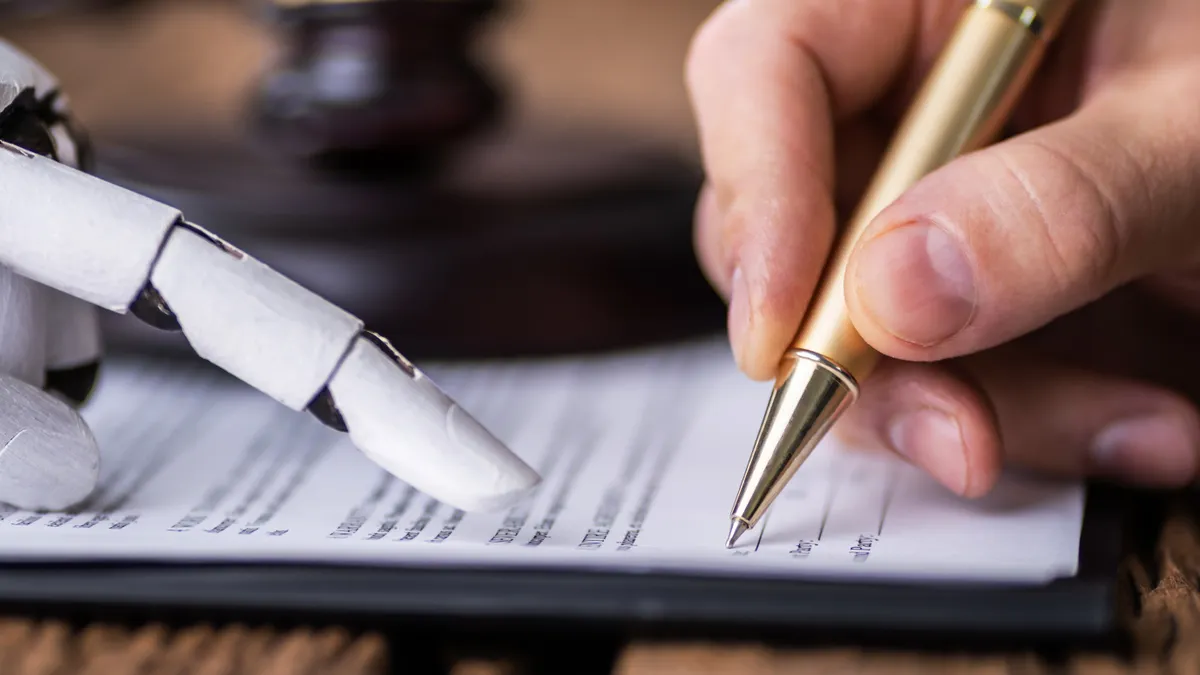The era of AI as a cool new tool is closing quickly.
It’s time for most lawyers to put it to work and show results — the era of artificial intelligence as a junior associate, the kind of colleague who might be a good lawyer one day, after a few years of experience.
This vision of overworked attorneys and clients demanding cost savings is one in which a legal technology firm, Alexi Technologies, is pitching its AI-powered litigation platform as another colleague, just not a human one.
The platform is designed to automate many of a litigator’s routine tasks: Summarizing expert reports, researching relevant case law, writing briefs and motions. The company says it has mapped each type of document that is generated or reviewed during U.S. and Canadian litigation and is building functionality for each into its platform. The company says Alexi is a form of agentic AI — software that uses a form of reasoning and iterative planning to solve multi-step problems.
In many corporate legal departments or larger law firms, this work typically falls to junior staff. In smaller operations, there is no junior staff. AI assumes a natural role for legal work, according to Alexi executives. The platform will soon produce court-ready documents, according to the company.
“The competitive dynamic of the market for legal services is such that the law firms that aren’t using it, they’re going to provide more expensive, worse-quality services to their clients,” Mark Doble, the co-founder and chief executive at Toronto-based Alexi, told Legal Dive on Oct. 17.
“We’re already seeing very rapid adoption, not just within our company, but lots of other companies. It’s hard to predict timelines and how things are actually going to happen, but what’s undeniable is the value that it provides.”
Alexi introduced some expanded features on Tuesday, and says its platform will be able to produce court-ready briefs and motions in 2025.
“We believe that interacting with AI is very much like interacting with a colleague within your firm, and it takes time to build trust, to understand how to talk to that associate, to understand the quality of work you get back,” Doble said. “For some things you might need to review it more than other things.”
The company, and its rivals, are working to marry case law and facts that a lawyer presents to fully comprehend a legal matter, said Daniel Diamond, Alexi’s chief revenue officer and a former civil litigator.
“With this ability to ingest documents and understand what they're about and convey that back to the customer, when we have this marriage of those two elements, we have the facts of the case, we have the law,” Diamond said. “That’s what enables us to have the foundation that lets us draft briefs and motions and affidavits and actual court documents. So that’s where we’re headed real soon.”
“There’s very prestigious litigation firms in both Canada and the U.S. that are regularly incorporating their (Alexi) content into their documents,” Doble said, declining to reveal any.
Many firms, especially high-profile ones, “are far more reluctant right now to acknowledge AI’s influence on the end product,” Doble said. “I think they’re willing to acknowledge behind-the-scenes, back office work, but at this point, it’s influencing the end product. There’s still reluctance to acknowledge that. But it is no doubt happening. It's going to happen more and more.”
Over time, he said, AI legal tools will reduce the volume of human errors in court filings.
A federal judge in New York sanctioned two lawyers and their firm last year after they filed a brief prepared by ChatGPT, which fabricated cases to cite, as part of their client’s suit against an airline.
“We have to look at it in that broader context that we can’t be holding (AI) to the standard of perfection,” Diamond said. “We don't hold humans to the standard of perfection, but if we hold them at the same standard, the AI is going to outperform almost every single time. Maybe not right now, on every task or every use case, but it’s sure tending in that direction.”











